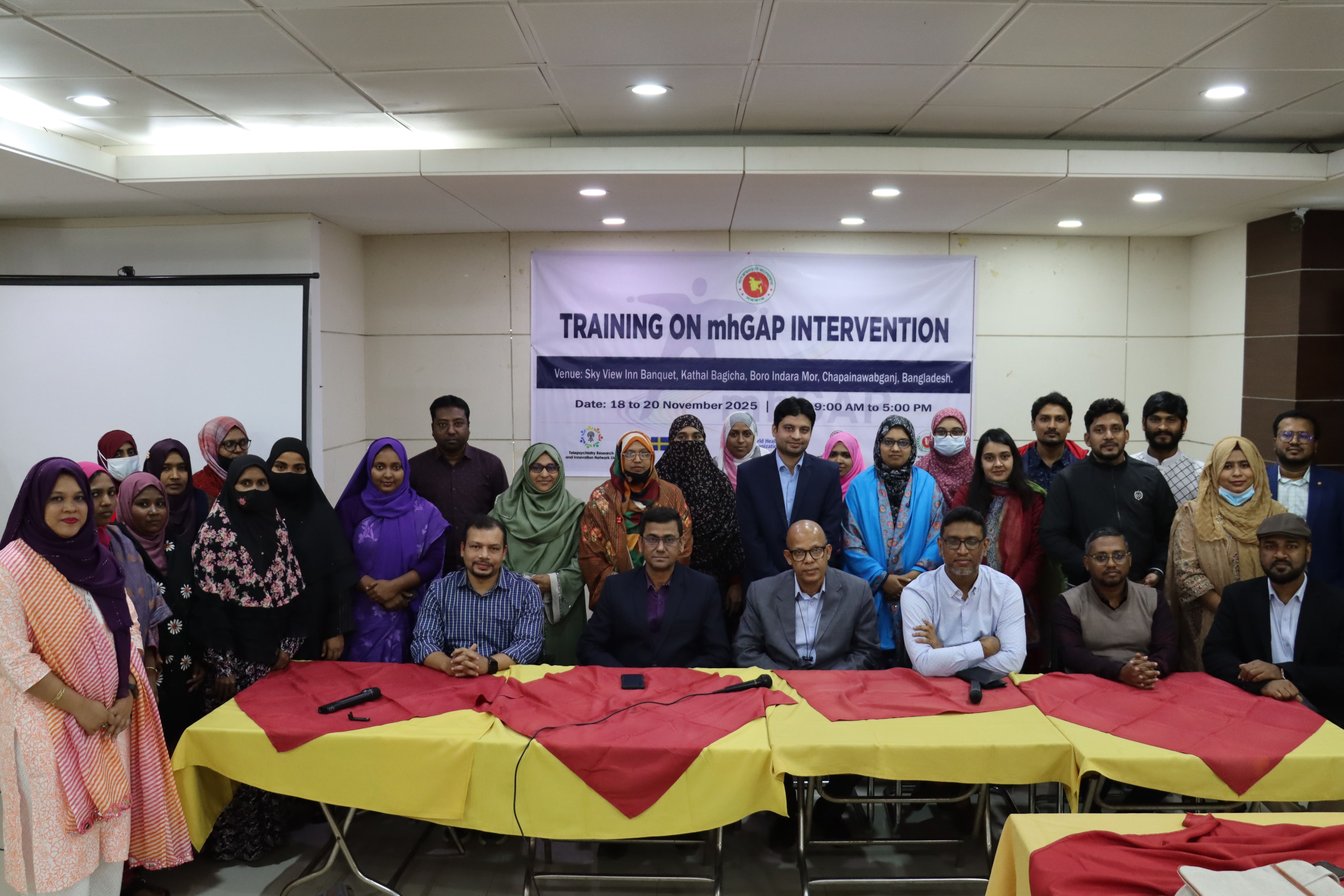Lack of mental health service has been documented as a major contributor to the global health burden and like many other developing countries, most of the rural people in Bangladesh are out of the radar of mental health care. However, Bangladesh has a strong network of 15000 community health clinics with more than 185,000 community health workers. These primary health care providers and clinics can play a vital role in effective minimization of mental health treatment gap in the rural communities of Bangladesh. If we can train this large number of grass root healthcare workers along with interested local volunteers, the mental health treatment gap can be minimized. However, to train them with usual classroom setting will cost a huge amount of budget and manpower which will be difficult to implement in resource limited settings. This resource constrain can be solved by implementing internet based mental health training for the community health workers and volunteers. This study will try to find out and analyze the critical factors (eg. Acceptability, internet cost and availability of high-speed internet) which may impact the implementation of online training for mental health of the health volunteers and community health workers in Bangladesh. The research question is “What are the critical barriers of implementing online training program for community mental health volunteers in Bangladesh?” A clear understanding on the barriers of online mental health training will work as a background study will help to design and develop an effective nationwide online mental health training.
Ongoing Research


